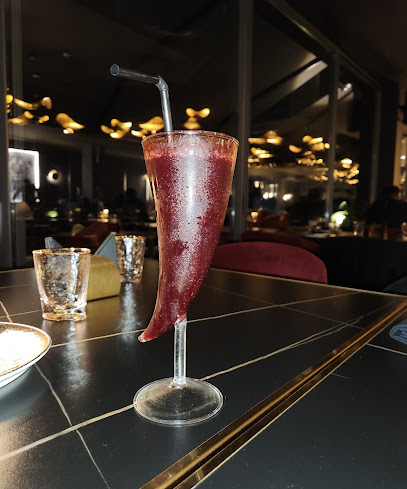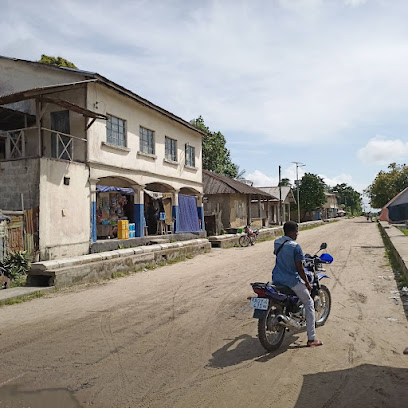
Sherbro Island: Sierra Leone's Hidden Gem
Sherbro Island, located off the coast of Sierra Leone, is a tropical paradise that promises an authentic and serene experience for tourists. This island, known for its stunning beaches, lush mangrove forests, and rich cultural heritage, offers a unique escape from the hustle and bustle of city life. Visitors to Sherbro Island can immerse themselves in the island's natural beauty by exploring its pristine beaches, perfect for sunbathing, swimming, and beachcombing. The island's vibrant marine life makes it an excellent spot for snorkeling and fishing. For those interested in bird watching, the island's mangrove forests are home to a variety of bird species, providing a haven for nature enthusiasts. Cultural enthusiasts will appreciate the island's rich history and heritage. The local Sherbro people have a long tradition of fishing and boat-building, and visitors can witness these time-honored crafts firsthand. The island also hosts traditional festivals that offer a glimpse into the local customs and way of life. Whether you're looking to relax on the beach, explore nature, or immerse yourself in local culture, Sherbro Island offers a unique and unforgettable experience for every traveler.
Local tips in Sherbro Island
- Pack lightweight, breathable clothing as the island's climate is typically warm and humid.
- Bring insect repellent to guard against mosquitoes, especially if you plan to explore the mangrove forests.
- Carry cash, as there are limited banking facilities and ATMs on the island.
- Respect local customs and traditions, particularly when visiting villages and attending festivals.
- Consider hiring a local guide to enhance your experience and learn more about the island's history and culture.
Sherbro Island: Sierra Leone's Hidden Gem
Sherbro Island, located off the coast of Sierra Leone, is a tropical paradise that promises an authentic and serene experience for tourists. This island, known for its stunning beaches, lush mangrove forests, and rich cultural heritage, offers a unique escape from the hustle and bustle of city life. Visitors to Sherbro Island can immerse themselves in the island's natural beauty by exploring its pristine beaches, perfect for sunbathing, swimming, and beachcombing. The island's vibrant marine life makes it an excellent spot for snorkeling and fishing. For those interested in bird watching, the island's mangrove forests are home to a variety of bird species, providing a haven for nature enthusiasts. Cultural enthusiasts will appreciate the island's rich history and heritage. The local Sherbro people have a long tradition of fishing and boat-building, and visitors can witness these time-honored crafts firsthand. The island also hosts traditional festivals that offer a glimpse into the local customs and way of life. Whether you're looking to relax on the beach, explore nature, or immerse yourself in local culture, Sherbro Island offers a unique and unforgettable experience for every traveler.
When is the best time to go to Sherbro Island?
Unmissable attractions to see
Outamba Kilimi National Park
Explore Outamba Kilimi National Park: A wildlife haven in Sierra Leone, perfect for adventure seekers and nature lovers alike.
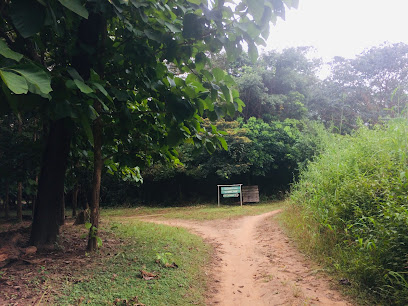
Turtle and Sherbro Bank
Dive into adventure at Turtle and Sherbro Bank, a stunning reef destination in Sierra Leone, where vibrant marine life thrives in crystal-clear waters.

Essential places to dine
Markets, malls and hidden boutiques
vip Fashion store
Explore the vibrant and unique fashion offerings at VIP Fashion Store in Freetown, a boutique that celebrates local craftsmanship and contemporary style.

Sherbro Island
Explore the untouched paradise of Sherbro Island, where pristine beaches meet rich culture in a tranquil West African getaway.
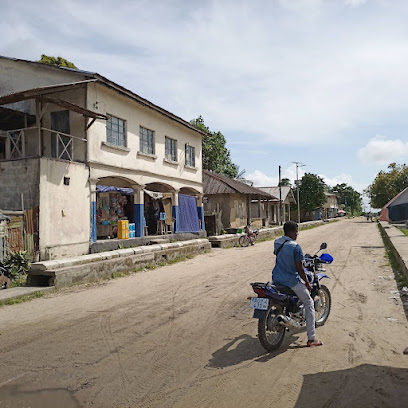
Bonthe Fresh Market
Experience the vibrant culture of Bonthe at the Fresh Market, where local produce and community spirit come together.
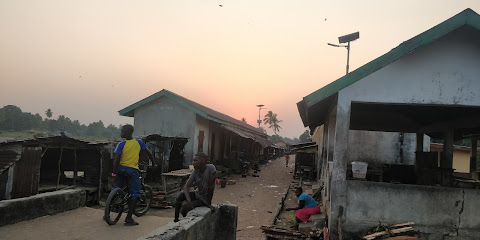
Bellah section
Discover a unique blend of local craftsmanship and modern design at Bellah Section, Matru's premier home goods store.

R.Reddy Enterprises India
Explore R.Reddy Enterprises in Moriba Town for authentic local flavors and high-quality groceries, a true taste of Sierra Leone.
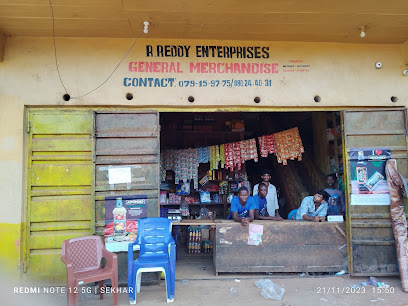
Blush Freetown
Explore Blush Freetown for unique gifts and beauty products that embody the spirit of Sierra Leone, creating lasting memories of your visit.
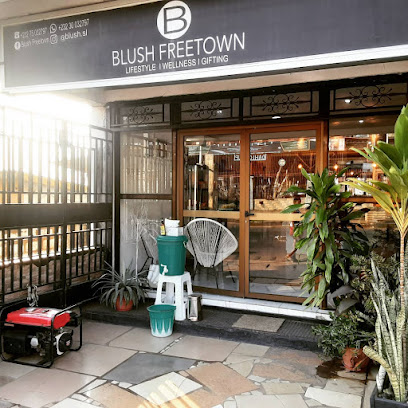
Sierra Online Store
Explore the vibrant Sierra Online Store in Freetown, your go-to destination for high-quality cosmetics and beauty products in Sierra Leone.

Seaview shopping mall
Explore Seaview Shopping Mall in Moriba Town for a unique shopping experience filled with local flavors and international delights.
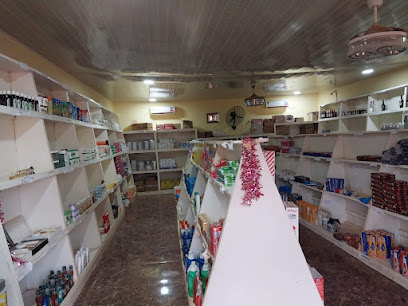
Bonthe District Fisheries
Explore Bonthe District Fisheries, where fishing traditions and vibrant local culture come together in Sierra Leone's picturesque landscapes.

The Family Enterprise
Discover community health and wellness at The Family Enterprise, a pharmacy in Botohol that connects locals and tourists through care and advice.

Community Store Building
Explore Bonthe's Community Store Building: Your local pharmacy for health essentials and community care.

Kinsmen Enterprise
Discover Kinsmen Enterprise in Taigbe, your reliable pharmacy for all health needs while exploring Sierra Leone.

Manowa Drugstore
Discover Manowa Drugstore in Cheppu, your trusted pharmacy for essential health products and friendly service during your travels.

Good Health Samala Pharmacy
Explore Bonthe with peace of mind, knowing Good Health Samala Pharmacy is here to support your health needs with quality products and expert advice.

Sherbro River
Explore the tranquil beauty of Sherbro River, a scenic escape in Sierra Leone perfect for nature lovers and adventure seekers.

Essential bars & hidden hideouts
Mamba Point Hotel Restaurant Lagoonda
Savor the essence of Sierra Leonean and international cuisine at Mamba Point Hotel Restaurant Lagoonda, where stunning views meet delightful flavors.

Olba Restaurant
Discover the vibrant flavors of the Mediterranean at Olba Restaurant, a culinary gem on Freetown's Lumley Beach.
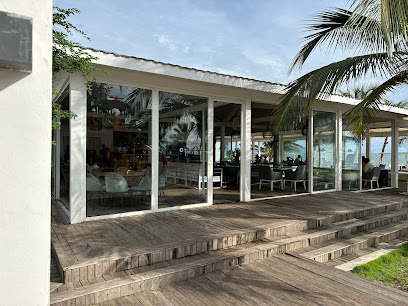
Roof Garden Bar & Restaurant
Experience breathtaking views and exquisite dining at the Roof Garden Bar & Restaurant in Freetown, where local flavors meet international flair.
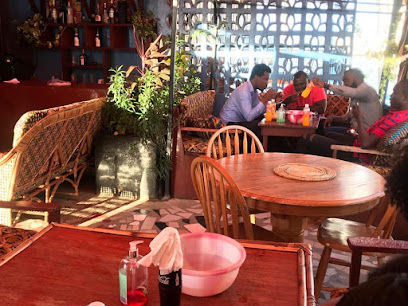
LOR Resturant
Discover the flavors of Sierra Leone at LOR Restaurant, where local cuisine meets international tastes in a vibrant and welcoming atmosphere.
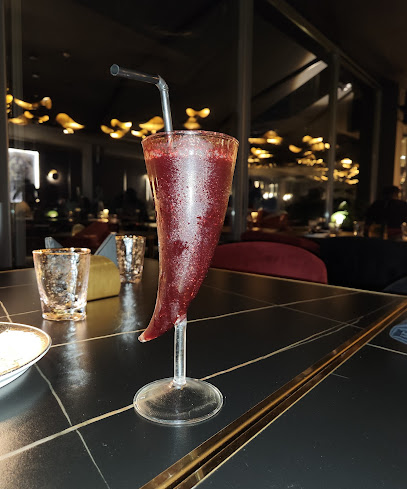
Leone sky bar
Experience the breathtaking views and vibrant atmosphere at Leone Sky Bar, Freetown's premier rooftop destination for relaxation and nightlife.
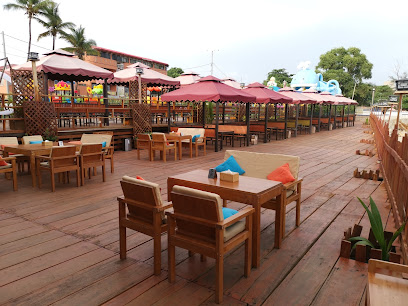
Remedy Hangout Bar
Discover the lively nightlife at Remedy Hangout Bar in Freetown, where refreshing drinks and vibrant entertainment await you.

Sherbro Island
Experience the natural beauty and vibrant culture of Sherbro Island, a hidden gem in Sierra Leone that promises adventure and relaxation.
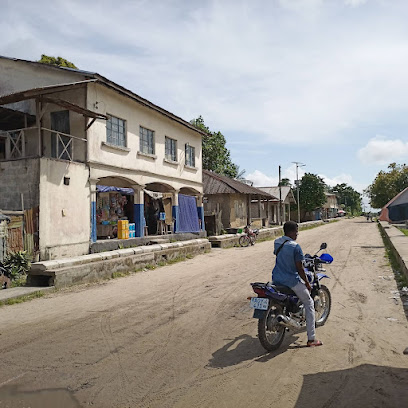
Mamz Beach Bar
Discover the vibrant atmosphere and delicious flavors at Mamz Beach Bar, a perfect oasis for relaxation and entertainment in Freetown, Sierra Leone.
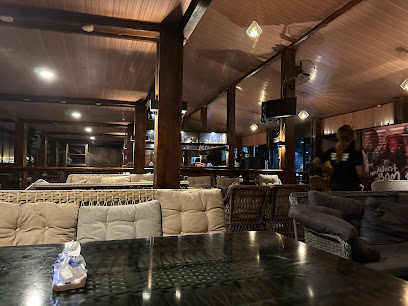
DeVillage Beach Bar & Restaurant
Experience the ultimate beach dining at DeVillage Beach Bar & Restaurant, where grilled delicacies meet stunning ocean views in Freetown.
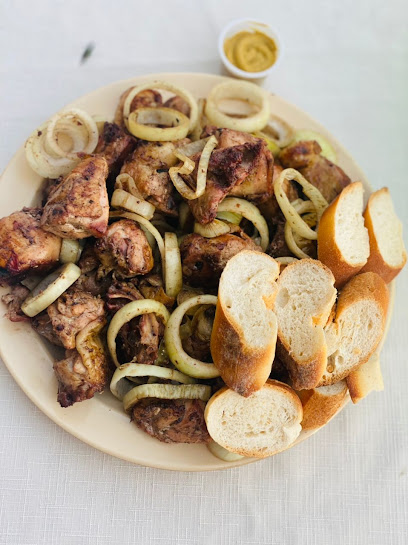
Empress Bar
Discover Empress Bar in Freetown for a unique blend of culture, relaxation, and vibrant nightlife, perfect for unwinding after your adventures.
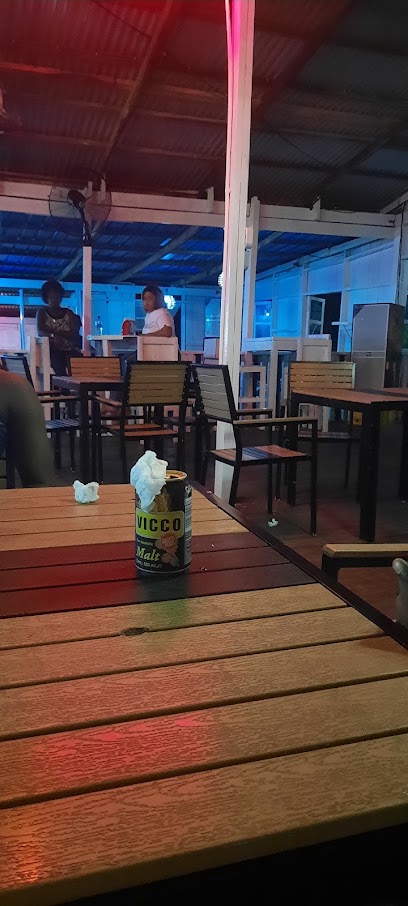
Ransim Night club
Dive into the unforgettable nightlife of Freetown at Ransim Night Club, where music and culture come alive every night.
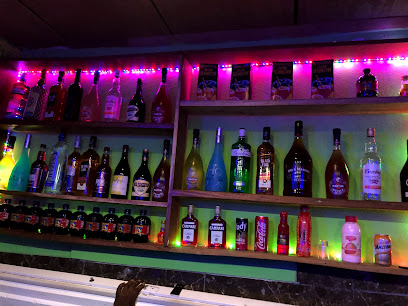
Lahai Koroma
Discover the coastal charm of Lahai Koroma, a vibrant bar in Moriba Town, Sierra Leone, offering stunning sea views and delicious local flavors.
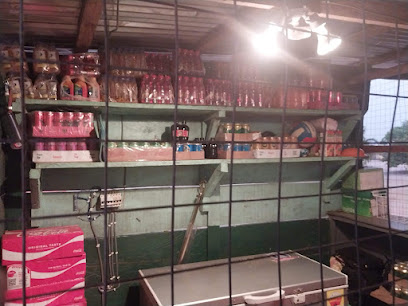
Vanity
Discover Vanity: The ultimate lounge experience in Freetown, blending style, comfort, and local flavor for an unforgettable evening out.

Whatsapp Bar and Night Club
Discover the pulsating nightlife of Freetown at Whatsapp Bar and Night Club, where music, dance, and fun come together in a vibrant atmosphere.

Local Phrases about Sherbro Island
-
- HelloKushe
[Koo-sheh] - GoodbyeKiafu
[Kee-ah-foo] - YesEe
[Eh] - NoLeh
[Leh] - Please/You're welcomeNyaari
[Nyah-ree] - Thank youTenki
[Ten-kee] - Excuse me/SorryWui
[Woo-ee] - How are you?Kain tɛn?
[Kai-in ten?] - Fine. And you?Kushe. Nyaari?
[Koo-sheh. Nyah-ree?] - Do you speak English?Un de sabi Inglish?
[Oon deh sah-bee Een-gleesh?] - I don't understandMi no bin sabi
[Mee noh been sah-bee]
- HelloKushe
-
- I'd like to see the menu, pleaseMi go wɔdi di menu, kɔmpin
[Mee goh woh-dee dee meh-noo, kohm-peen] - I don't eat meatMi no de eat meet
[Mee noh deh eet meet] - Cheers!Kampai!
[Kam-pai] - I would like to pay, pleaseMi go pay, kɔmpin
[Mee goh pay, kohm-peen]
- I'd like to see the menu, pleaseMi go wɔdi di menu, kɔmpin
-
- Help!Epi!
[Eh-pee] - Go away!Fɔl bɔk!
[Fohl bohk] - Call the Police!Kɔl di Polis!
[Kohl dee Poh-lees] - Call a doctor!Kɔl doktɔ!
[Kohl dohk-toh] - I'm lostMi lɔs
[Mee lohss] - I'm illMi sik
[Mee seek]
- Help!Epi!
-
- I'd like to buy...Mi go bɔ...
[Mee goh boh...] - I'm just lookingMi jus de luk
[Mee joos deh look] - How much is it?Di prais na ɔl?
[Dee price nah awl?] - That's too expensiveDi prais tɔɔ tɔɔ
[Dee price toh toh] - Can you lower the price?Yu sabi dɔn di prais?
[Yoo sah-bee dohn dee price?]
- I'd like to buy...Mi go bɔ...
-
- What time is it?Na wɔch tɛn dis?
[Nah woh-ch ten dees?] - It's one o'clockNa wan tɛn
[Nah wahn ten] - Half past (10)Haf pɔs (10)
[Hahf pohss (ten)] - MorningMɔnin
[Moh-neen] - AfternoonAftanun
[Ahf-tah-noon] - EveningIvinin
[Ee-vee-neen] - YesterdayYɛstadɛ
[Yeh-stah-deh] - TodayTide
[Tee-deh] - TomorrowTomɔɔ
[Toh-moh] - 1Wan
[Wahn] - 2Tu
[Too] - 3Tri
[Tree] - 4Fɔ
[Foh] - 5Faif
[Fayf] - 6Seks
[Seks] - 7Sɛvɛn
[Seh-vehn] - 8Eit
[Ayt] - 9Nain
[Nah-een] - 10Ten
[Ten]
- What time is it?Na wɔch tɛn dis?
-
- Where's a/the...?Ɛn dɔn de...?
[Ehn dohn deh...?] - What's the address?Wetin da adris?
[Wey-teen dah ad-rees?] - Can you show me (on the map)?Yu sabi shɔ mi (ɔn di map)?
[Yoo sah-bee show mee (on dee map)?] - When's the next (bus)?Na wen di nɛks wan de kam?
[Nah wen dee necks wahn deh kahm?] - A ticket (to ....)Wan tikɛt (tɔ ....)
[Wahn tee-keh (toh ....)]
- Where's a/the...?Ɛn dɔn de...?
History of Sherbro Island
-
Sherbro Island, located off the coast of Sierra Leone, has a history that dates back to ancient times. It was originally settled by the Sherbro people, a subgroup of the Mende ethnic group. These early inhabitants lived in small, self-sufficient communities and relied on fishing, farming, and trading with nearby coastal and inland tribes. The island's rich mangrove swamps and fertile lands provided ample resources for the early settlers.
-
In the 15th century, European explorers began to arrive on the coast of West Africa. Portuguese navigators were among the first to make contact with Sherbro Island. They were followed by the British, Dutch, and French, who were drawn to the region's potential for trade. The island became a significant point in the trans-Atlantic trade networks, including the tragic and harrowing slave trade.
-
Sherbro Island played a complicated role in the trans-Atlantic slave trade. While some local leaders and traders engaged in the selling of captives to European slavers, others strongly resisted the practice. The island became a transit point for enslaved Africans being shipped to the Americas. The remnants of this dark period in history can still be seen in some parts of the island, including old forts and trading posts.
-
In the 19th century, Sherbro Island came under British influence as part of their colonial expansion in West Africa. The British established administrative outposts and trading centers on the island, integrating it into the larger colony of Sierra Leone. During this period, the island saw significant changes, including the introduction of Western education, Christianity, and new economic practices.
-
The 20th century brought further transformations to Sherbro Island. Following Sierra Leone's independence from British colonial rule in 1961, the island became part of the newly independent nation. Throughout the 20th century, the island witnessed efforts to modernize its infrastructure, improve educational opportunities, and develop its economy. However, these efforts were often challenged by economic hardships and political instability.
-
Despite the changes brought by colonization and modernization, Sherbro Island has retained a rich cultural heritage. The Sherbro people continue to celebrate traditional festivals, music, and dance. The island is known for its vibrant masquerade performances, intricate wood carvings, and colorful textiles. Local cuisine, which includes dishes made from fresh seafood, rice, and cassava, remains an integral part of the island's cultural identity.
-
Sherbro Island is not only rich in history but also in natural beauty. The island boasts pristine beaches, lush mangrove forests, and diverse wildlife. It is a haven for birdwatchers, with numerous species of migratory and native birds. The surrounding waters are teeming with marine life, making it a popular destination for fishing and eco-tourism. Conservation efforts are ongoing to protect the island's unique ecosystems.
Sherbro Island Essentials
-
Sherbro Island is located off the coast of Sierra Leone in the Atlantic Ocean. The nearest major city with an international airport is Freetown, where Lungi International Airport (FNA) is situated. From Freetown, you can take a combination of road and water transport. First, travel by road to the town of Mattru Jong, which takes approximately 4 to 5 hours. From Mattru Jong, you can take a local boat or ferry to Sherbro Island, which takes around 1 to 2 hours, depending on the weather conditions.
-
Once on Sherbro Island, transportation options are limited. The most common modes of transport are motorbikes, bicycles, and local boats. Motorbike taxis are frequently used for short distances, while bicycles can be rented for a more leisurely exploration of the island. For inter-village travel, local boats are the primary mode of transport. There are no car rental services on the island, so plan accordingly.
-
The official currency of Sierra Leone is the Leone (SLL). Cash is the primary mode of transaction on Sherbro Island, as credit card facilities are extremely limited. It is advisable to carry sufficient cash from Freetown or other major cities before arriving on the island. There are no ATMs on Sherbro Island, so plan your finances accordingly.
-
Sherbro Island is generally safe for tourists, but it is important to exercise caution. Avoid walking alone at night, especially in secluded areas. Petty theft can occur, so keep your belongings secure and be mindful of your surroundings. There are no specific high-crime areas targeting tourists, but it is always best to stay vigilant. It is recommended to travel with a local guide who knows the area well.
-
In case of emergency, dial the local emergency number 117 for police assistance. The island has limited medical facilities, so it is crucial to have travel insurance that covers medical emergencies. For minor health issues, there are small clinics and pharmacies where you can obtain basic medical supplies. For serious medical emergencies, you may need to be transported to the mainland.
-
Fashion: Do dress modestly and respect local customs. Avoid wearing revealing clothing. Religion: Do respect local religious practices and traditions. Participate respectfully if invited to local ceremonies. Public Transport: Do be courteous and greet drivers and fellow passengers. Don't expect fixed schedules; transport operates on a more flexible, demand-based system. Greetings: Do greet people with a friendly 'hello' or 'good day.' Handshakes are common, especially in more formal settings. Eating & Drinking: Do try local dishes and accept food offerings graciously. Don't waste food, as it is considered impolite.
-
To experience Sherbro Island like a local, visit the local markets where you can buy fresh seafood and local produce. Engage with the islanders, who are often friendly and eager to share their culture and history. Participate in community events and festivals to fully immerse yourself in the local lifestyle. Don't miss the opportunity to explore the island's beautiful beaches and mangrove forests, and take a guided tour to learn about the island's unique ecosystem.
Nearby Cities to Sherbro Island
-
Things To Do in Pujehun
-
Things To Do in Port Loko
-
Things To Do in Magburaka
-
Things To Do in Kenema
-
Things To Do in Conakry
-
Things To Do in Monrovia
-
Things To Do in Kakata
-
Things To Do in Voinjama
-
Things To Do in Buchanan
-
Things To Do in Faranah
-
Things To Do in Gbarnga
-
Things To Do in Ganta
-
Things To Do in Sanniquellie
-
Things To Do in Quebo
-
Things To Do in Buba


